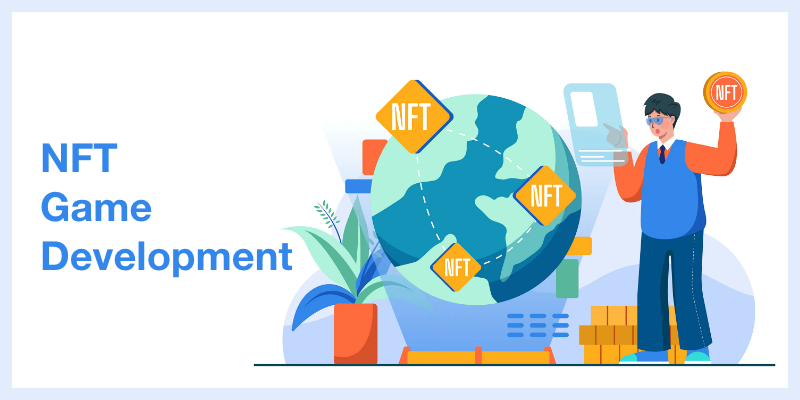In the ever-evolving landscape of digital gaming, a new player has entered the arena, transforming how we perceive and interact with virtual environments. NFT Game Development, standing at the crossroads of blockchain technology and digital entertainment, is not just redefining gaming but also how value and ownership are understood in the digital realm. This blog post delves into the frequently asked questions about NFT game development, offering insights for enthusiasts, developers, and gamers alike. Whether you’re a seasoned developer or a curious gamer, understanding the nuances of NFTs in gaming is essential in navigating this innovative field.
Q1: What is NFT Game Development?
NFT game development involves creating digital games where assets (like characters, items, and in-game currency) are tokenized as NFTs on a blockchain. This ensures uniqueness and ownership of these digital items.
Q2: Why are NFTs important in gaming?
NFTs introduce a new level of ownership and value to digital assets within games. Players can truly own, buy, sell, or trade their in-game items, creating a more dynamic and potentially profitable gaming ecosystem.
Q3: How does blockchain technology enhance NFT games?
Blockchain technology ensures transparency, security, and authenticity. It enables verifiable scarcity of in-game assets and allows for secure and transparent transactions.
Q4: Can NFTs in games be a source of income?
Yes, players can potentially earn through trading NFTs. The value of in-game NFTs can increase based on rarity, demand, and the game’s popularity.
Q5: What are the challenges in NFT game development?
Challenges include ensuring fair value and rarity of NFTs, managing blockchain transaction costs, maintaining game balance, and addressing ethical concerns around speculative trading.
Q6: How do I start with NFT game development?
Starting involves learning about blockchain technology, smart contracts, and NFT standards. Collaborating with experienced blockchain developers and understanding the gaming market are crucial steps.
Q7: Are there any notable examples of NFT games?
Games like ‘CryptoKitties’, ‘Axie Infinity’, and ‘Decentraland’ are popular examples where players interact with and trade NFTs.
Q8: What is the future of NFT gaming?
The future looks promising with the potential for more immersive experiences, integration with virtual and augmented reality, and new models of player ownership and economic interaction.
NFT game development is an exciting and evolving field, merging traditional gaming with the revolutionary aspects of blockchain and NFTs. As technology advances, we anticipate more innovative and engaging NFT-based games in the market.

